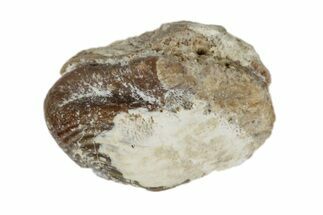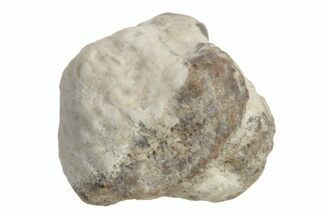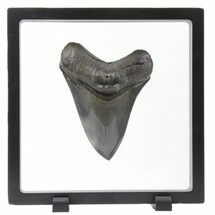This Specimen has been sold.
Bargain, 1.52" Fossil Shark (Cretoxyrhina) Tooth - Kansas
This is a 1.52" fossil tooth of the shark (Cretoxyrhina). It is Late Cretaceous in age and comes from the Smoky Hill Chalk in Gove County, Kansas.
During the Late Cretaceous, much of the middle of the United States was covered by the Western Interior Seaway effectively splitting the continent in two. The Niobrara Formation in Kansas is one of the best known localities for marine fossils deposited during this time. These fossils include the remains of giant marine predators including Mosasaurs, Plesiosaurs, sharks like Cretoxyrhina and the giant predatory fish Xiphactinus.
Cretoxyrhina mantelli was a large shark that lived about 100 to 82 million years ago during the late Cretaceous period. It is nicknamed the Ginsu shark in reference to the Ginsu knife, since it fed by slicing into its victims with its knife-sharp teeth. Cretoxyrhina was the largest shark in its time and was among the oceans' apex predators. Fossil records indicate that it preyed on a variety of marine animals including Mosasaurs, Plesiosaurs, bony fish like Xiphactinus, and large turtles like Archelon.
During the Late Cretaceous, much of the middle of the United States was covered by the Western Interior Seaway effectively splitting the continent in two. The Niobrara Formation in Kansas is one of the best known localities for marine fossils deposited during this time. These fossils include the remains of giant marine predators including Mosasaurs, Plesiosaurs, sharks like Cretoxyrhina and the giant predatory fish Xiphactinus.
SPECIES
Cretoxyrhina mantelli
LOCATION
Gove County, Kansas
FORMATION
Niobrara Formation, Smoky Hill Chalk
SIZE
1.52"
CATEGORY
SUB CATEGORY
ITEM
#142954
We guarantee the authenticity of all of our specimens.
 Reviews
Reviews












